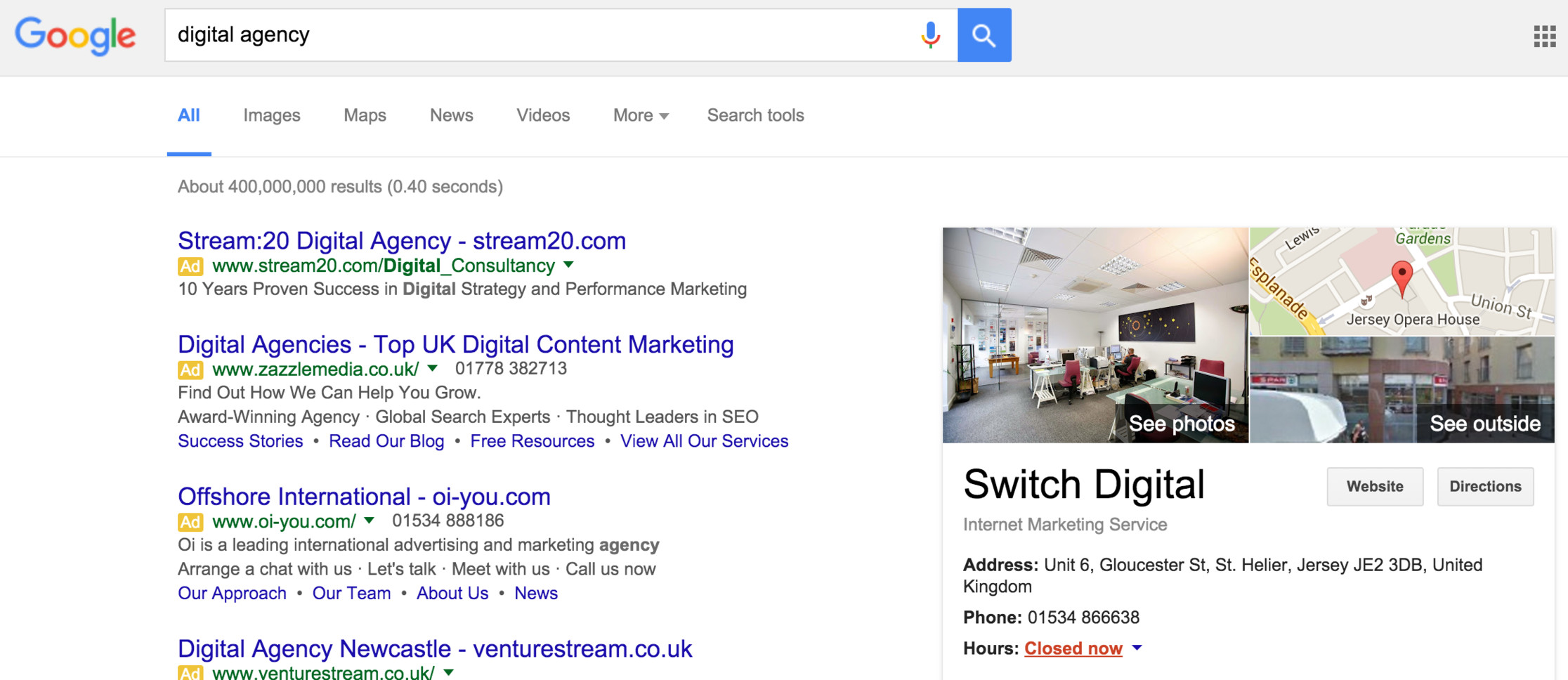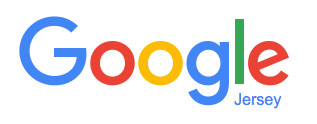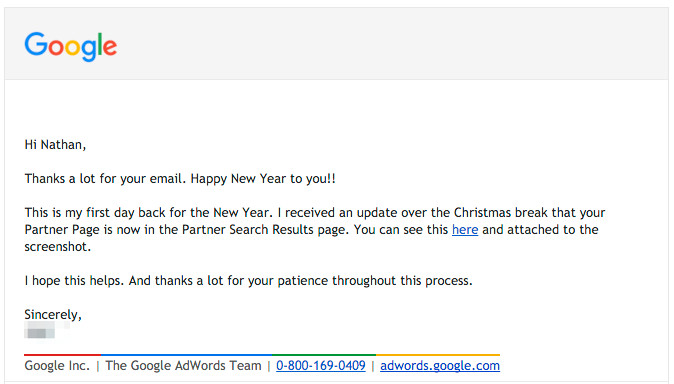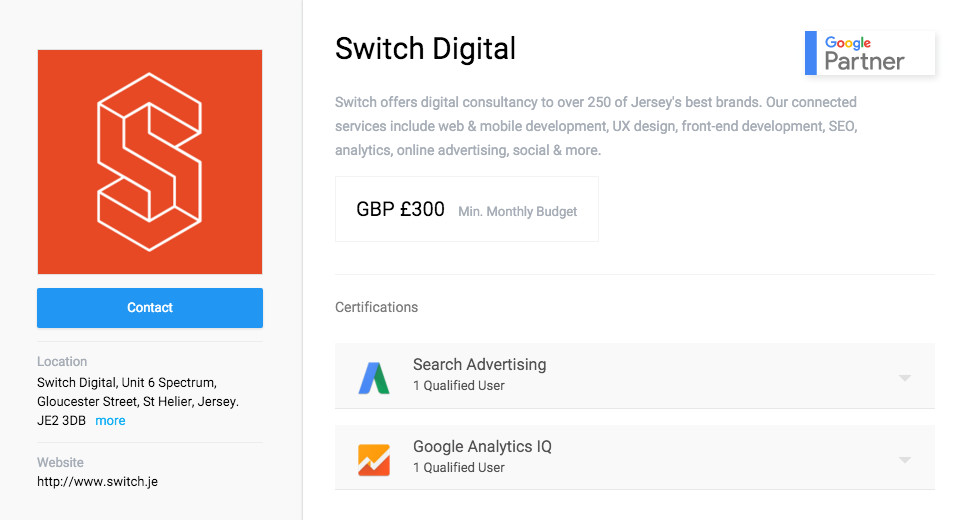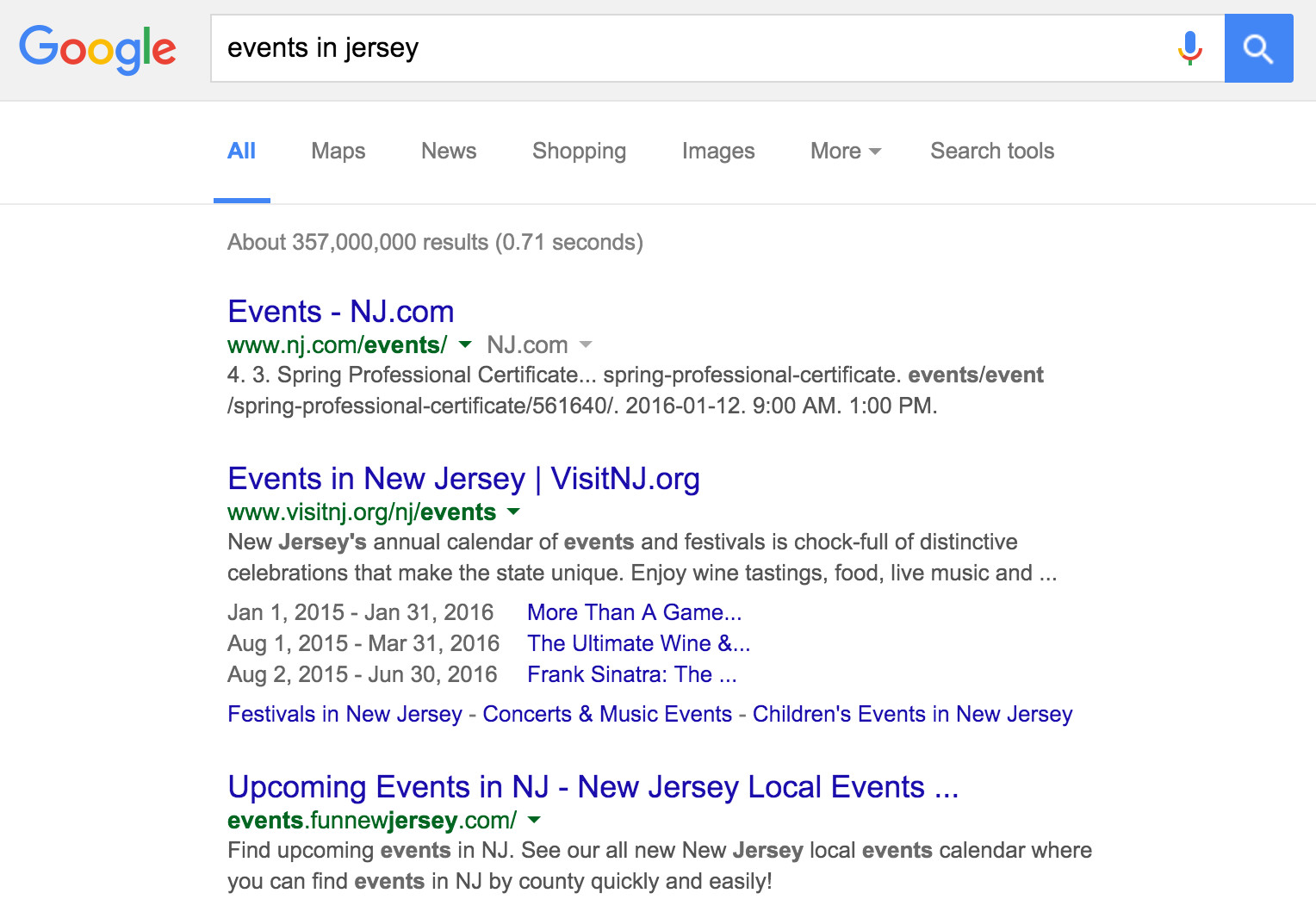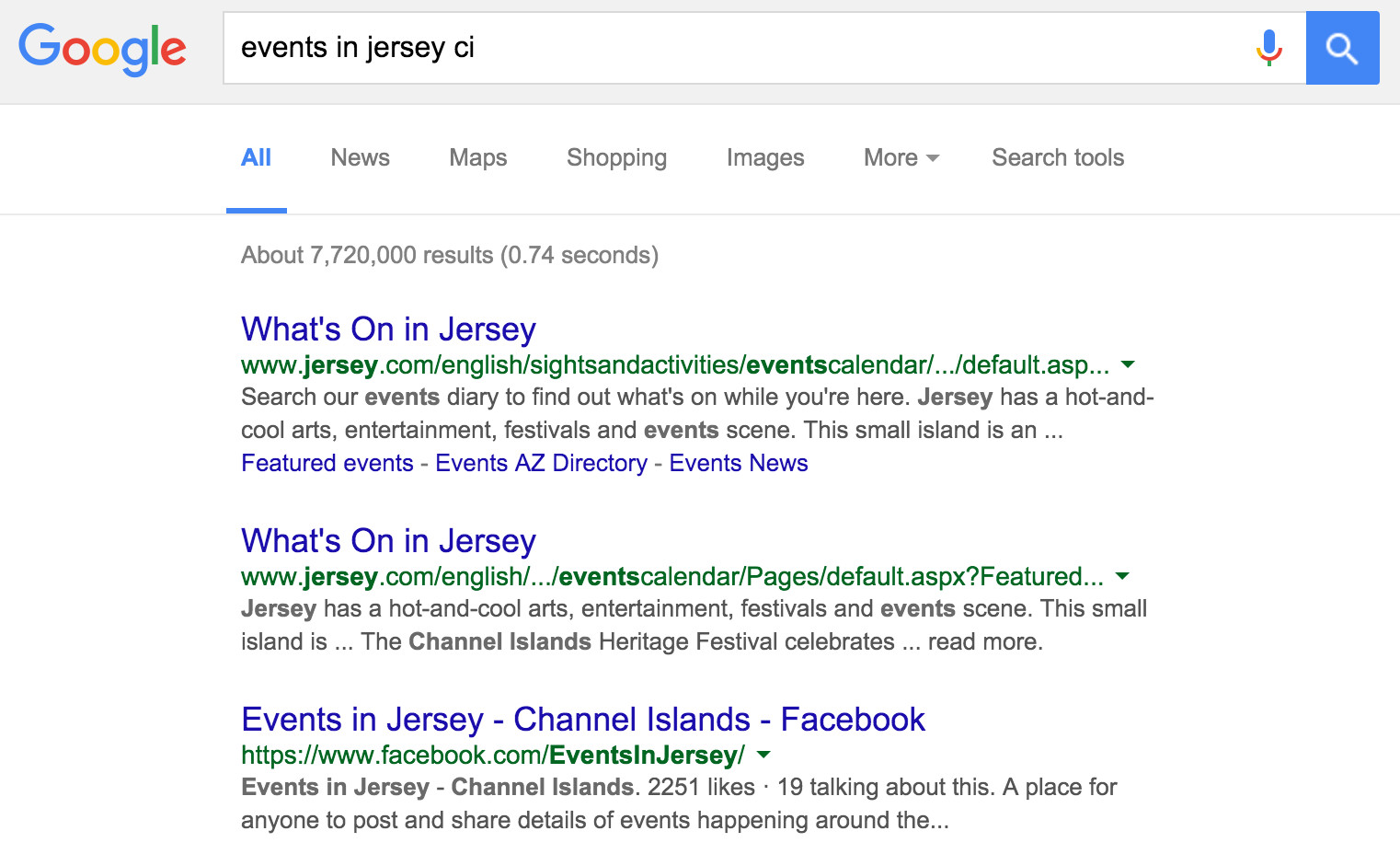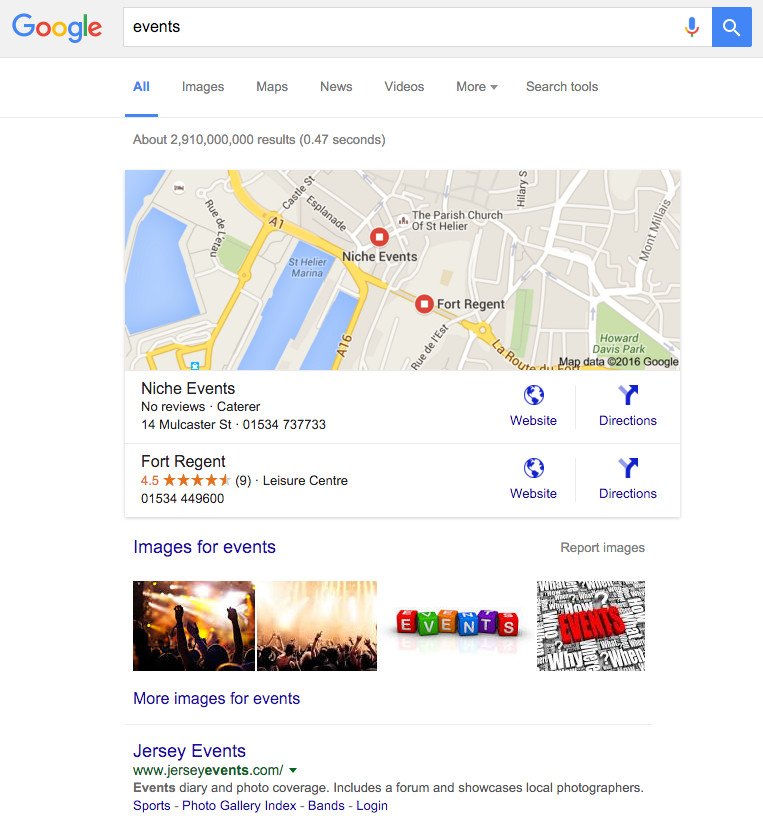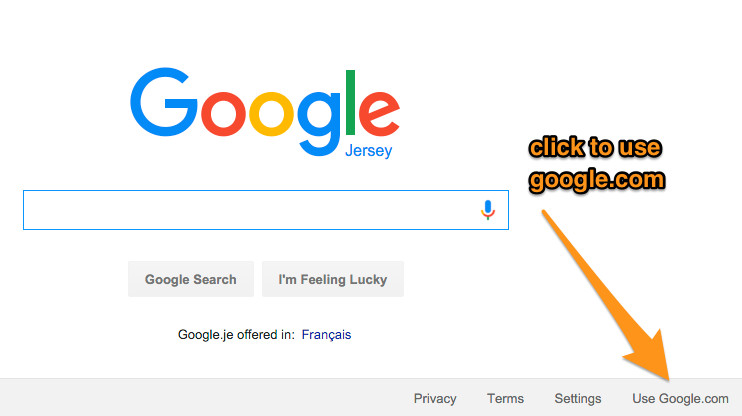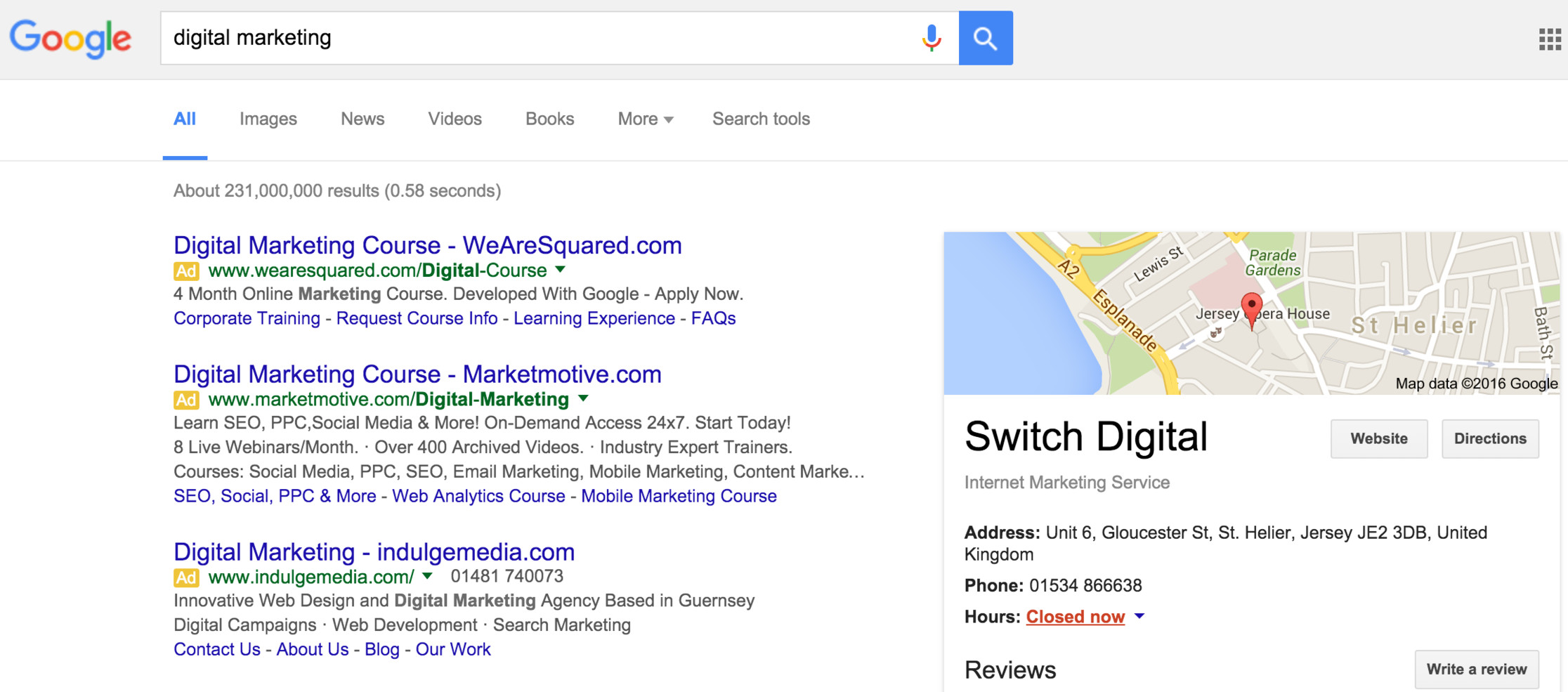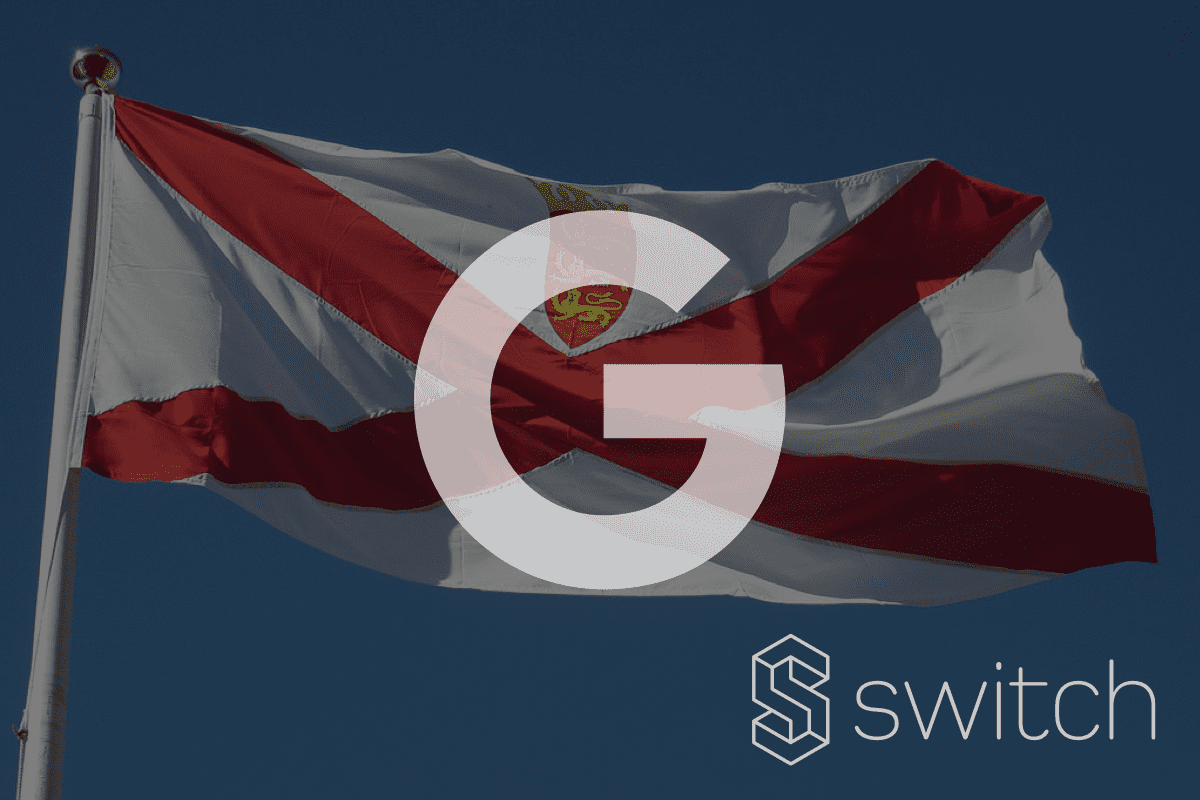
Since September 2015, local digital marketing agency Switch Digital has been working with community members of the Google Search Help Forum to advocate change and greater recognition of Jersey’s localised version of the search engine Google; www.google.je. Some of you may have noticed that in recent days, google.com started automatically redirecting users to google.je. Below we explain why Google has made the change, how we influenced this change and explain what this change means for local businesses.
Since 2004, Google has been automatically redirecting (most) users outside of the US from google.com to a localised version of the search engine e.g. if you are located in the UK and you visit www.google.com you will be automatically redirected to www.google.co.uk. Generally, this redirection is beneficial to searchers and given that Jersey had it’s very own localised search engine, we felt it was time to try and drive change.
On September 24th 2015, we posted a question on Google Search’s largest community to seek aid and assistance in escalating this issue to a Google Community Manager.
Switch also raised a separate issue with Google in October 2015 regarding our Google Partner agency listing. At the time, having recently gained Google Partner accreditation, we wanted to ensure that if anyone in Jersey was searching for a certified Google Partner using the Google Partner ‘Find a Partner’ tool, that we would appear in the results for Jersey. Having chased Google on the issue for several months, on our return to the office in January 2016 our Google Partner RM reported that our issue had been resolved over the Christmas holiday, and so, perhaps this also had a role to play in bringing about the change.
Jersey’s relationship with Google prior to the change
Historically, many Islanders have used google.com to search the web, which is the flagship version of Google, built to serve those that live in the US. Consequently, using google.com to perform ‘localised’ searches throws up irrelevant results e.g. searching for ‘events in jersey’ on google.com would return events relating to the US ‘New Jersey’, as shown below. This is an issue which has plagued Jersey for a number of years.
Results for ‘events in jersey’ on google.com
To combat the poor UX/result set that google.com has historically delivered, Islanders have become accustomed to refining queries to include location-specific terms such as ‘jersey’, ’channel islands’, ‘jersey ci’ or ‘jersey uk’.
Results for ‘events in jersey ci’ on google.com
This technique has served many of us well and is effective and often returns a local set of results, such as those shown above from jersey.com and facebook.com. The recent changes now enable local businesses to appear for shorter, generic queries such as ‘events’, as shown below.
Results for ‘events’ on google.je
How to access Google.com
Some people will still want to access Google.com from outside the US for their own good reasons. For example, if you were an American expat living in the UK, then you may still want to access Google.com over Google.co.uk for any number of reasons. To accommodate for such scenarios, Google.com can still be accessed.
- If you’ve been redirected by google.com to google.je, click the google.com link in the bottom right corner of the page.
- Alternatively, if you navigate to http://www.google.com/ncr, this should also automatically redirect you to google.com (NCR represents ‘No Country Redirect’), although, in recent weeks, some users outside of the US have reported that the /ncr redirect no longer works and many others in the Google Search Forum have also started to raise similar issues. So, things could change any day.
Note: If you delete your cache or cookies, you’ll need to bookmark the link again or re-enter the page into your browser. Also, once you have navigated to google.com/ncr please remember that if you would like Google to continue serving you google.je everytime you navigate to google.com then you will need to clear your cache and cookies.
It is also worth noting that access to google.co.uk should remain unrestricted.
Jersey Search Engine Optimisation (SEO) opportunities
As the ‘events’ example above illustrates, country-specific versions of Google are designed to rank content better for people in those particular countries. Someone in the UK searching for “football,” for example, is going to find Google UK provides more relevant results for what they want than going to Google.com and getting matches for American football. With this in mind, Jersey businesses should concentrate on maximising the visibility of their websites on google.je.
Switch has already started to reap the rewards of the recent changes and now occupy strong natural SEO rankings for relevant terms such as ‘digital agency’ and ‘digital marketing’, as shown below.
Results for ‘digital agency’ on google.je
